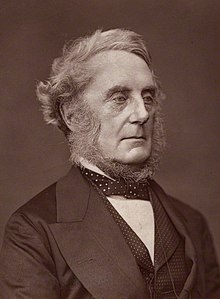The Viscount Cardwell | |
|---|---|
 The 1st Viscount Cardwell, c. 1878 | |
| Secretary of State for War | |
| In office 9 December 1868 – 17 February 1874 | |
| Monarch | Victoria |
| Prime Minister | William Ewart Gladstone |
| Preceded by | Sir John Pakington, Bt |
| Succeeded by | Hon. Frederick Stanley |
| Secretary of State for the Colonies | |
| In office 7 April 1864 – 26 June 1866 | |
| Monarch | Victoria |
| Prime Minister | The Viscount Palmerston The Earl Russell |
| Preceded by | The Duke of Newcastle |
| Succeeded by | The Earl of Carnarvon |
| Chancellor of the Duchy of Lancaster | |
| In office 25 July 1861 – 7 April 1864 | |
| Monarch | Victoria |
| Prime Minister | The Viscount Palmerston |
| Preceded by | Sir George Grey, Bt |
| Succeeded by | The Earl of Clarendon |
| President of the Board of Trade | |
| In office 28 December 1852 – 31 March 1855 | |
| Monarch | Victoria |
| Prime Minister | The Earl of Aberdeen The Viscount Palmerston |
| Preceded by | J. W. Henley |
| Succeeded by | The Lord Stanley of Alderley |
| Personal details | |
| Born | 24 July 1813 |
| Died | 15 February 1886 (aged 72) Torquay, Devon |
| Nationality | British |
| Political party | Tory Peelite Liberal |
| Spouse | Annie Parker (d. 1887) |
| Alma mater | Balliol College, Oxford |

Edward Cardwell, 1st Viscount Cardwell, PC, , FRS (24 July 1813 – 15 February 1886) was a prominent British politician in the Peelite and Liberal parties during the middle of the 19th century. He is best remembered for his tenure as Secretary of State for War between 1868 and 1874 and, with William Ewart Gladstone's support, the introduction of the Cardwell Reforms. The goal was to centralise the power of the War Office, abolish purchase of officers' commissions, and to create reserve forces stationed in Britain by establishing short terms of service for enlisted men.